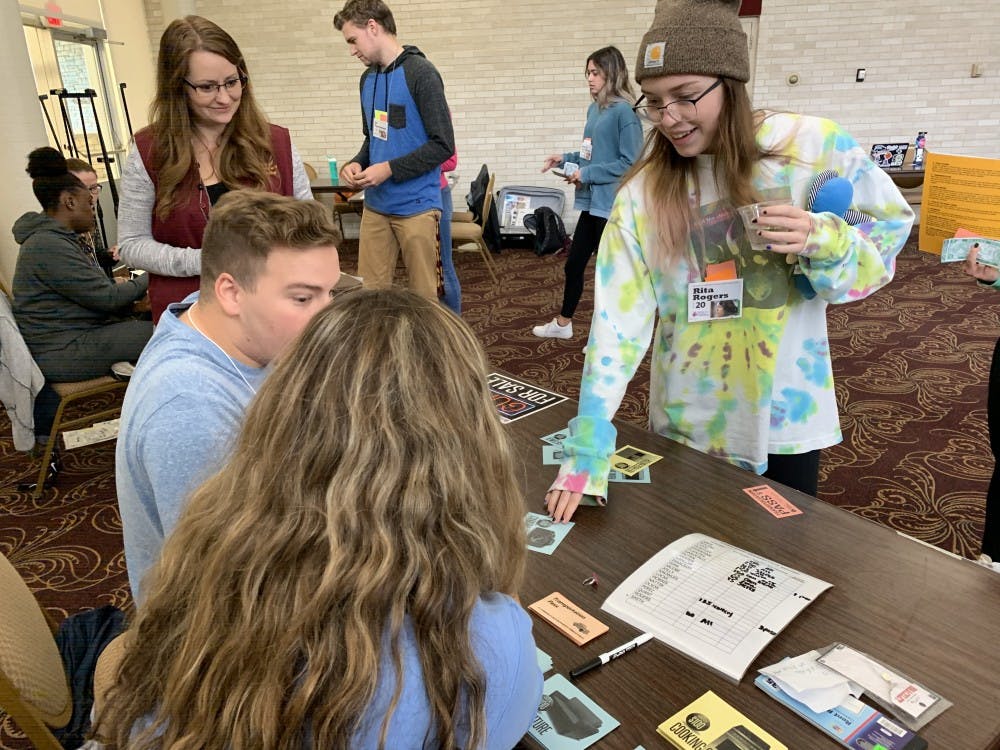Simulation shows students what it's like to live in poverty

Students were tasked with managing bills, childcare, evictions and even homelessness as part of a Poverty Simulation held on Oct. 4 in the Bovee University Center.
The simulation was hosted by human development and family studies faculty member Katie Reck.
The event consisted of four 15-minute rounds. Each “round” represents a week, and each week is a struggle to survive, with occasional twists such as robberies, illnesses, mounting bills, arrests and other tragedies.
By the third round of the event, evictions of families began. People who either hadn’t paid bills or couldn’t afford to have paid their bills were evicted. If kids were home alone during evictions, they were taken into police custody, just like in real-life cases.
“All of the families are given just enough resources to reflect life just above the poverty line, and they’re asked to do all of those things that a family needs to do," Reck said. "Go to work, go to school, pay your bills. It gives students a taste of what it’s like to live within this type of poverty."
The simulation is based on the Missouri Community Action Network model, a model that asks participants to experience one month as a family living in poverty or to live as a service provider struggling with too few resources to assist the families living in poverty.
On the services side of the program, students like Noah Syzmanski found themselves struggling to turn away students in poverty.
“At first it wasn’t hard helping out families," said Syzmanski, the owner of the fictitious buy-trade-sell shop. "But as it continued, we started to get more things from people so there was no reason to start giving people more money, and that’s when people started getting frustrated.”
The participants who didn’t serve as service members were broken up into teams that represented their new families. They were given a budget and asked to make the money they had for that week stretch to make their budget livable, just as a family in poverty would have to.
The event featured a “homeless shelter” for families that were evicted, but Reck points out that slots in the shelter will fill up quickly and tells students that they must find a spot on the sidewalk to live if they show up too late.
Senior Clare DePlanche said that the workshop showed her how important it is to show empathy towards others.
“It opened my eyes to the day-to-day struggles that people below the poverty line face," she said. "You really don’t know until you’re in these people’s shoes,” DePlanche said.






